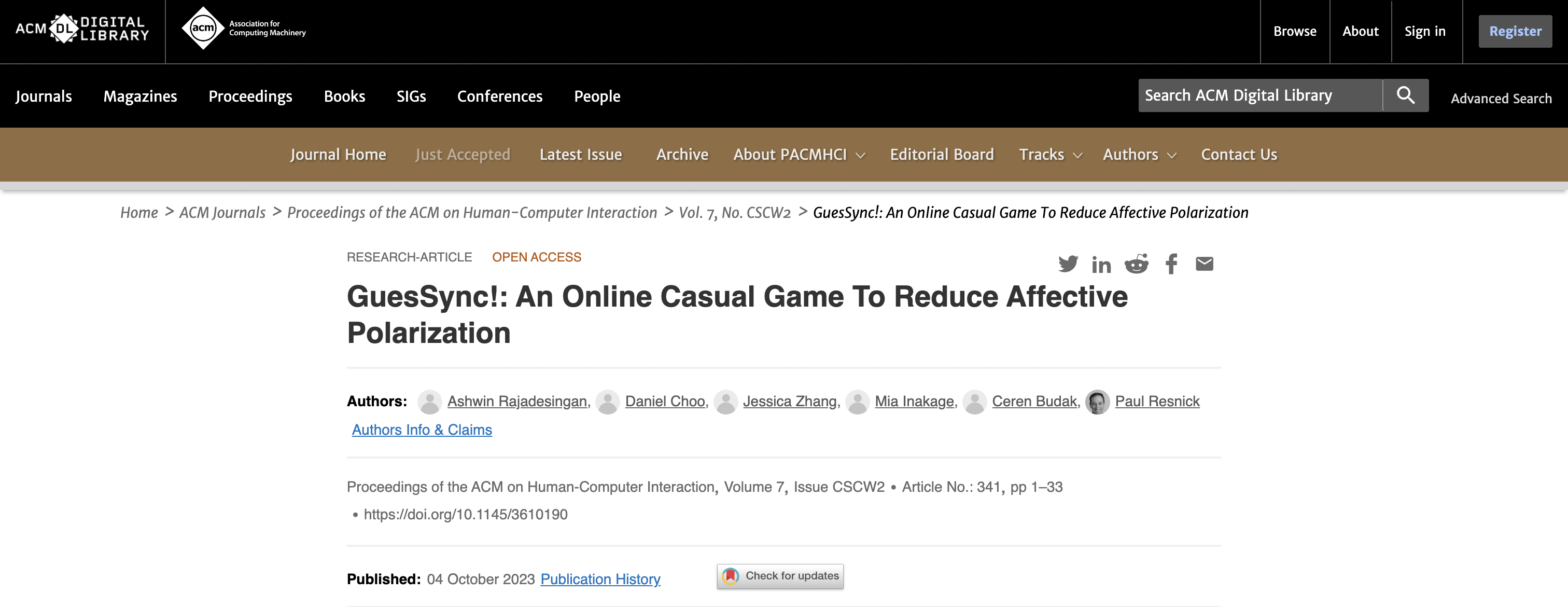GuesSync!: An Online Casual Game To Reduce Affective Polarization

The past decade in the US has been one of the most politically polarizing in recent memory. Ordinary Democrats and Republicans fundamentally dislike and distrust each other, even when they agree on policy issues. This increase in hostility towards opposing party supporters, commonly called affective polarization, has important ramifications that threaten democracy. Political science research suggests that at least part of the polarization stems from Democrats' misperceptions about Republicans' political views and vice-versa. Therefore, in this work, drawing on insights from political science and game studies research, we designed an online casual game that combines the relaxed, playful nonpartisan norms of casual games with corrective information about party supporters' political views that are often misperceived. Through an experiment, we found that playing the game significantly reduces negative feelings toward outparty supporters among Democrats, but not Republicans. It was also effective in improving willingness to talk politics with outparty supporters. Further, we identified psychological reactance as a potential mechanism that affects the effectiveness of depolarization interventions. Finally, our analyses suggest that the game versions with political content were rated to be just as fun to play as a game version without any political content suggesting that, contrary to popular belief, people do like to mix politics and play.
Proceedings of the ACM on Human-Computer Interaction, Volume 7, Issue CSCW2, Article No.: 341, pp. 1–33
Access the paper here: https://doi.org/10.1145/3610190
— Ashwin Rajadesingan, Daniel Choo, Jessica Zhang, Mia Inakage, Ceren Budak, Paul Resnick